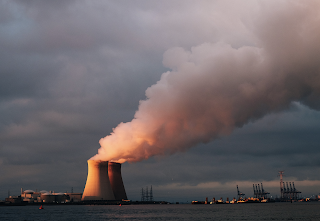This blog post is by Audrey Dombro, a 2020 graduate of the University of Illinois, Urbana-Champaign and a 2019-20 FLAS fellow. Please see here for a March 2020 blog post by Audrey reflecting on her experience studying in Jordan.
I entered the College of Agricultural, Consumer, and Environmental Sciences as an undergraduate student with a burgeoning interest in economics and development. My studies introduced a theoretical perspective on economic methods used in trade and development but I wanted to explore global communities more intimately to understand how these theories are applied on a micro level. I began to study the Arabic language and culture and applied for the Foreign Language and Area Studies (FLAS) fellowship through the European Union (EU) Center. Through promotion of events and speakers across campus, the EU Center provided a constant reminder of the multitude of potential directions and focuses of international engagement and helped me feel connected to a larger academic community.
My EU Center advisor encouraged me to examine the connection between European studies and my Arabic coursework— so I embarked on a study of imperialism. In my history courses, I became critically engaged with the Ottoman Empire, the empire in the Middle East prior to European interference via the Sykes-Picot Agreement and subsequent colonization. To understand the consequences, I wrote research papers on the status of judicial freedom within Ottoman religious minority communities and attitudes towards sexuality prior to European influence. Through a social sciences study, I gained an understanding of the complex cultural and historical factors that can be involved in economic development. My appreciation for the unique perspective I have attained from my Arabic studies with the EU Center propelled me to begin learning Urdu, a language of South Asia.
Although I graduated in 2020, my journey as a FLAS scholar has extended well beyond the duration of my fellowship. Despite originally pursuing professional work in social services to serve immigrant communities, I found myself confronting the flaws of our social safety net more broadly. At first glance, my continued work in public welfare felt far removed from my previous studies, but because the EU Center’s multidisciplinary approach has taught me to examine global connections, I recognized that public welfare itself was closely aligned with international studies. I now intend to pursue a graduate degree to build a foundation for exploring dynamic solutions to global issues of poverty and inequality, and examine how policy can rectify historical and ongoing damage to marginalized communities internationally. Thanks to the EU Center, my Arabic and Urdu language and cultural studies have broadened my understanding of social policy in these regions and in my home country. Although my academic and professional journey will continue to unfold, I am grounded with a constant reminder of global awareness that the FLAS fellowship has instilled in me.
Please see here to learn more about applying for a FLAS fellowship through the EU Center. Applications for Summer 2022 and Academic Year 2022-23 FLAS fellowships are due January 28, 2022.













